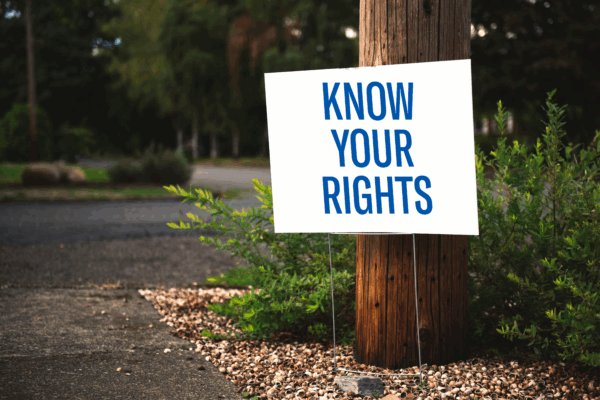Massachusetts residents have the right to display signs in their yards or on their other personal property so long as the signs meet reasonable requirements adopted by local government that relate to public safety. No local ordinance may dictate what type of messages a resident can display on their property without a compelling reason.
This right to free speech is especially strong where the sign is political, such as “Black Lives Matter,” “Protect Democracy,” “Make America Great Again,” “All Are Welcome Here,” or contains a message supporting candidates or ballot initiatives in an election. Residents may display such political or others signs all year round without unnecessary limits from the government.
Below, we answer some common questions that our office receives about this issue. If you feel as though your city or town is infringing on your right to display yard signs, you may print out this open letter penned by ACLU of Massachusetts attorneys and present it to your city or town’s government.
Stay Informed
Sign up to be the first to hear about how to take action.
By completing this form, I agree to receive occasional emails per the terms of the ACLU’s privacy statement.
By completing this form, I agree to receive occasional emails per the terms of the ACLU’s privacy statement.


